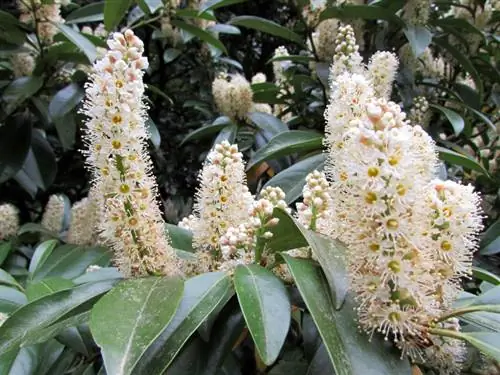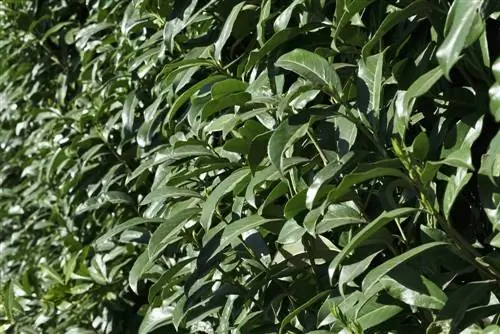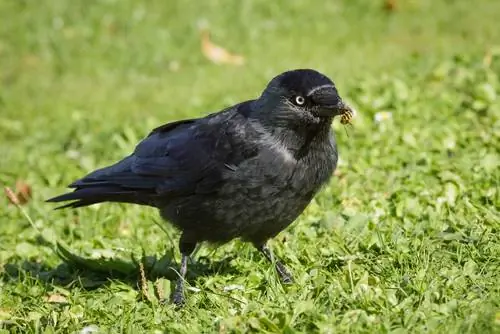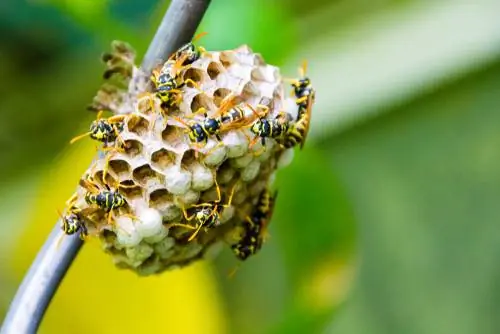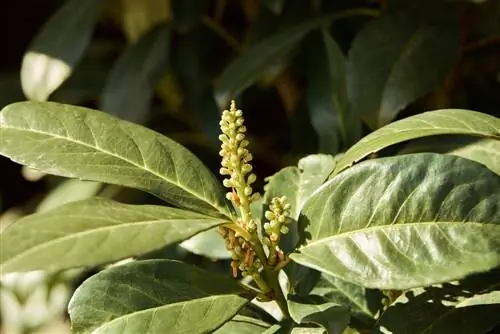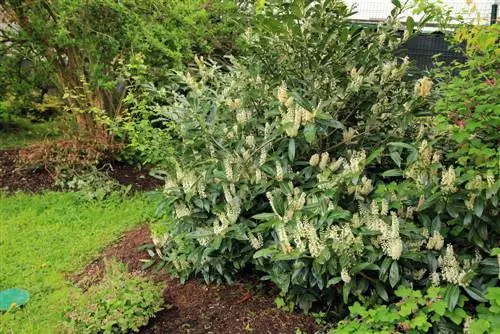- Author admin leonars@hobbygardeners.com.
- Public 2023-12-16 16:46.
- Last modified 2025-01-23 11:20.
Many garden owners observe in late summer that many wasps settle on the cherry laurel, preen themselves, crawl over the leaves searching and finally fly away again. We'll tell you why the animals are magically attracted to the laurel cherry.
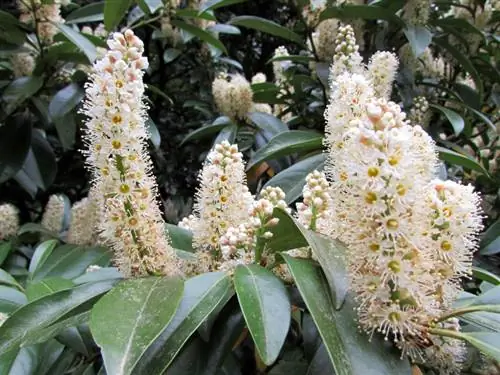
Why do cherry laurel bushes attract wasps?
Wasps are attracted to cherry laurel because the plant has extrafloral nectarines that release a concentrated sugar solution. This solution contains fructose, glucose, sucrose, flavorings and minerals and serves as an important source of carbohydrates for wasps.
Wasps love everything that tastes sweet
In addition to protein-rich food to raise their brood, wasps need carbohydrates as “muscle fuel”. That's why insects are so interested in anything that tastes sweet. Thanks to their mouthparts, the wasps are dependent on food sources that are easy to reach.
The cherry laurel has nactar glands outside the flower. Through these extrafloral nectarines it secretes a concentrated sugar solution that is a real treat for wasps, ants and many other insects
The main ingredients of the plant sap are:
- Fructose (fruit sugar)
- Glucose
- Sucrose (cane sugar)
- Flavourants
- Minerals
The concentration of sugar in the plant sap depends on the climatic conditions and the nature of the soil. This explains why there are so many wasps in some laurel cherries, but the bushes in another location are apparently spurned by the insects.
Wasps can signal aphid infestation
In addition to sweet plant juices, wasps and ants drink the sweet secretions of aphids. Due to digestion and drying after excretion, honeydew contains a comparatively large amount of sugar; the concentration can be up to 90 percent.
Tips & Tricks
Wasps occasionally build their nests in the dense foliage of the cherry laurel. Since the insects are important beneficial insects, you should only remove an inhabited wasp nest if it poses a danger. Please refrain from destroying the nest and, if necessary, have it relocated by a professional.

